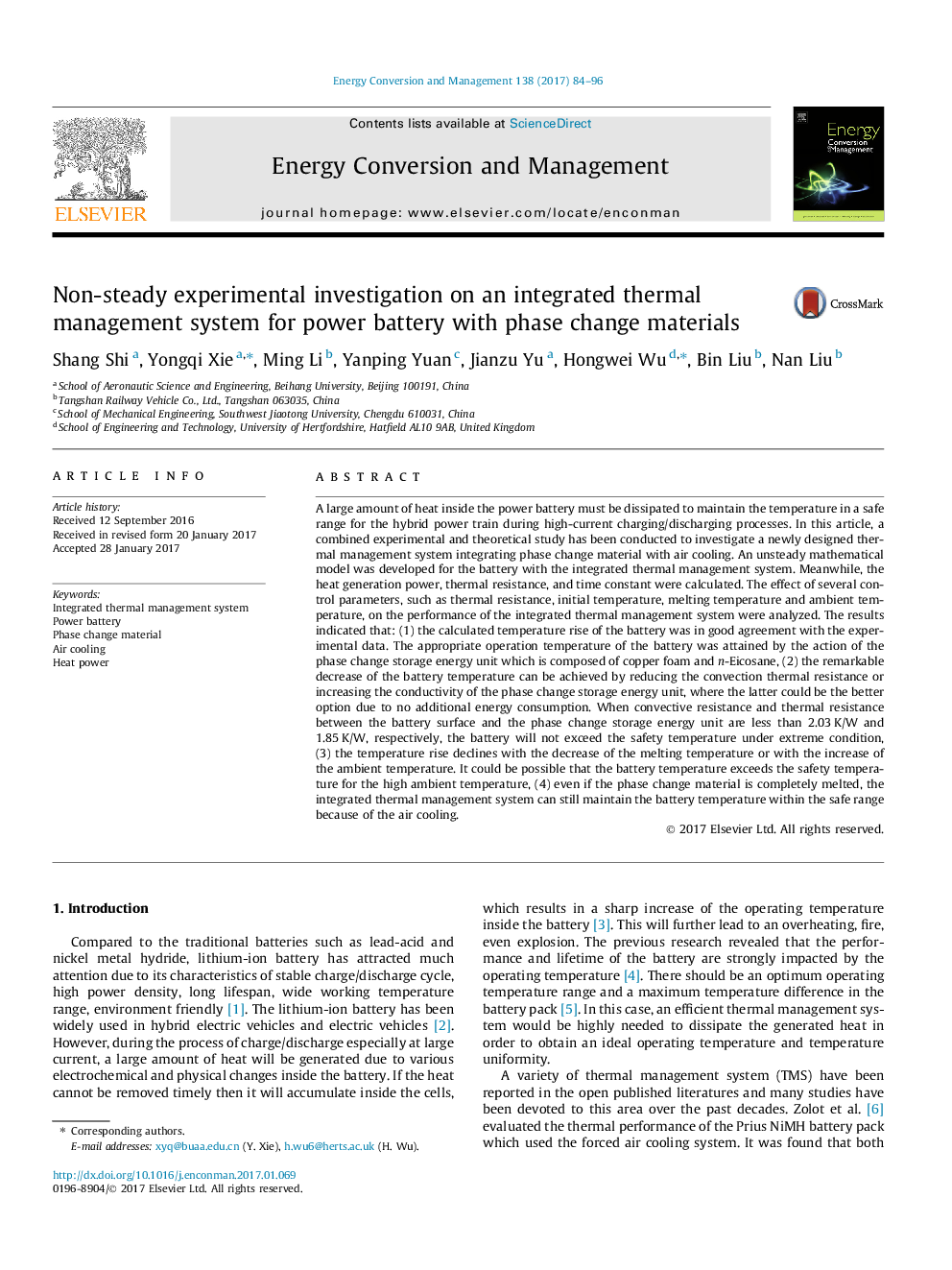ترجمه فارسی عنوان مقاله
آزمایش غیرمستقیم تجربی در یک سیستم مدیریت حرارتی یکپارچه برای باتری با مواد تغییر فاز
عنوان انگلیسی
Non-steady experimental investigation on an integrated thermal management system for power battery with phase change materials
| کد مقاله | سال انتشار | تعداد صفحات مقاله انگلیسی |
|---|---|---|
| 136702 | 2017 | 13 صفحه PDF |
منبع

Publisher : Elsevier - Science Direct (الزویر - ساینس دایرکت)
Journal : Energy Conversion and Management, Volume 138, 15 April 2017, Pages 84-96
ترجمه کلمات کلیدی
یکپارچه سیستم مدیریت حرارتی، باتری باتری، مواد تغییر فاز خنک کننده هوا، قدرت حرارتی،
کلمات کلیدی انگلیسی
Integrated thermal management system; Power battery; Phase change material; Air cooling; Heat power;

